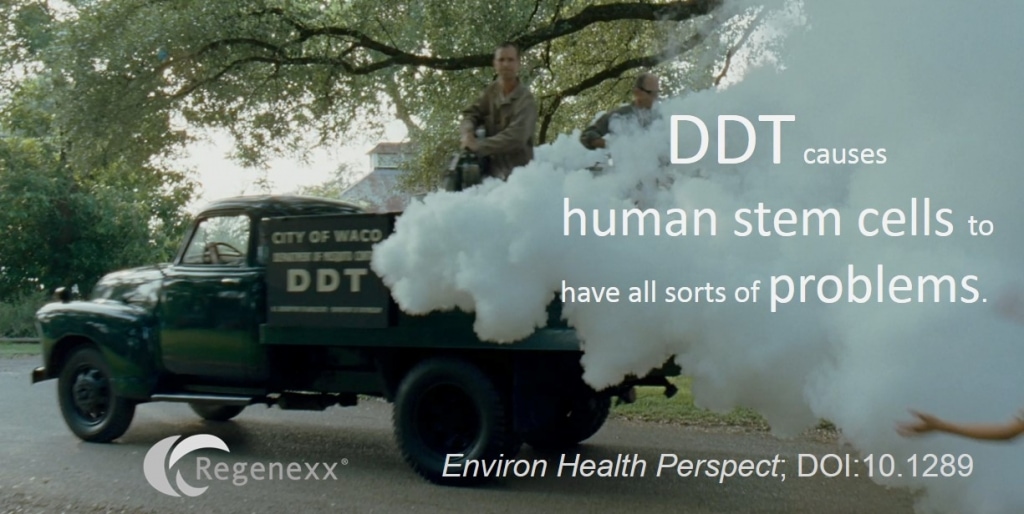DDT Linked to Dramatically Bad Effects on Stem cells
Did you know that DDT effects stem cells? We all remember the DDT images of our childhood, the bird eggs broken by the weight of the mother nesting. While DDT was banned as an insecticide in the 1970s, it regrettably is still around, having accumulated in our bodies. Now a new research study shows dramatically bad things happening to stem cells exposed to DDT.
DDT was an insecticide commonly used to spray for mosquitoes. You may remember those fog tricks that would roam the streets of many a suburb spraying for the blood sucking pests. These trucks often used DDT. The 1960s book Silent Spring exposed the environmental impact of DDT from indiscriminate spraying and demonstrated links between the insecticide and cancer. In addition, it pointed out the dramatic effects the chemical was having on softening the eggs of nesting birds, causing them to collapse. In 1972 the U.S. banned DDT and later a worldwide ban went into place. However, it’s still used to control the spread of malaria in certain parts of the world.
The new study looked at human mesenchymal stem cells (MSCs) exposed to DDT in the lab. MSCs exposed to DDT didn’t grow well and didn’t form as many colonies. In addition, the differentiation of MSCs to other cell types was impacted. Finally, the ability of the stem cells to renew themselves (a key property of a stem cell whereby it makes another copy of itself) was also impacted, along with the expression of certain genes.
The upshot? DDT really messed up adult stem cells. The authors contemplate that some of these DDT caused stem cell alterations that may be why the chemical causes cancer. In addition, the fact that DDT exposure has also been linked to Alzheimer’s disease in those already at genetic risk, is really disconcerting. I guess we can now say with confidence that when we suburban kids ran behind those mosquitoe trucks for fun, it was a really bad idea…

If you have questions or comments about this blog post, please email us at [email protected]
NOTE: This blog post provides general information to help the reader better understand regenerative medicine, musculoskeletal health, and related subjects. All content provided in this blog, website, or any linked materials, including text, graphics, images, patient profiles, outcomes, and information, are not intended and should not be considered or used as a substitute for medical advice, diagnosis, or treatment. Please always consult with a professional and certified healthcare provider to discuss if a treatment is right for you.
